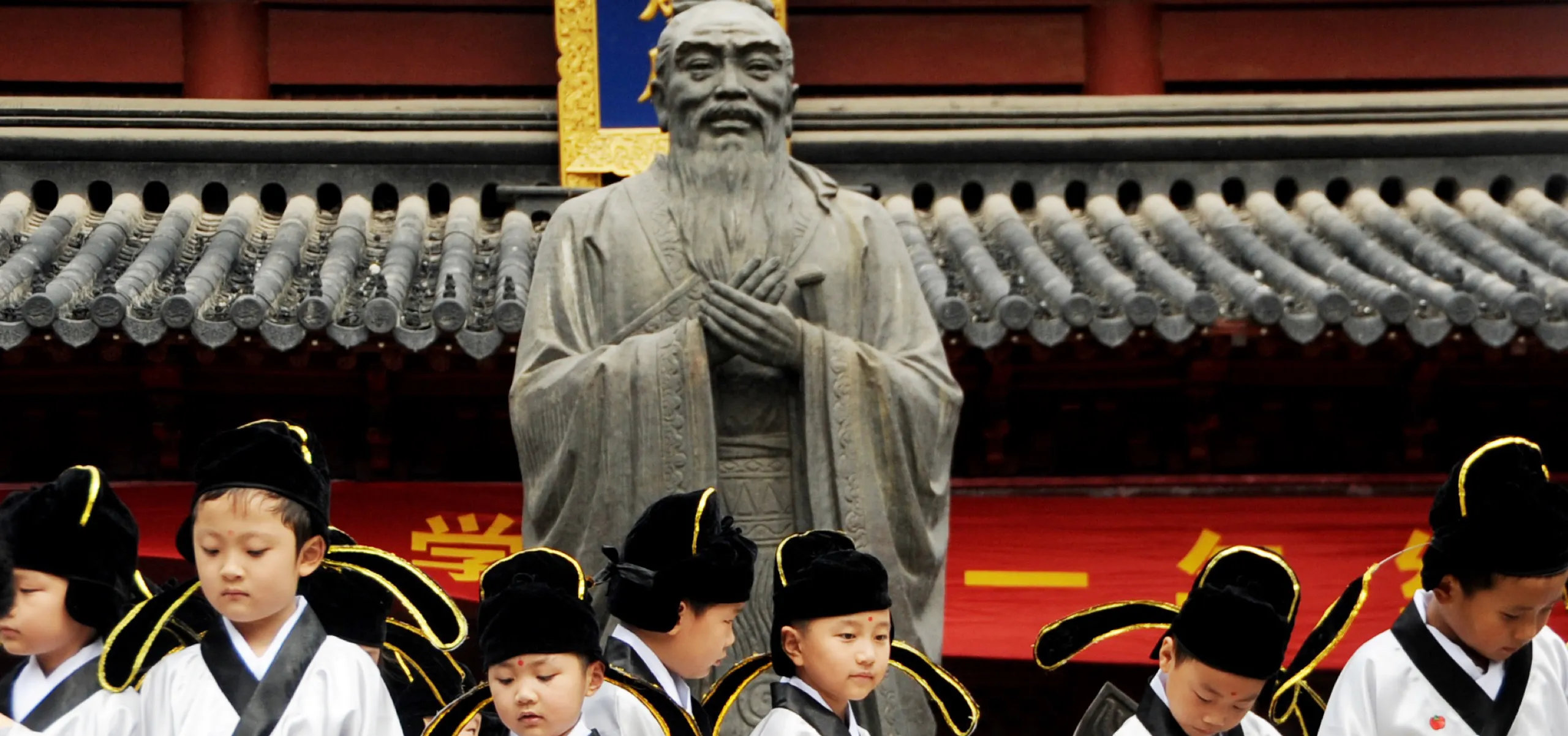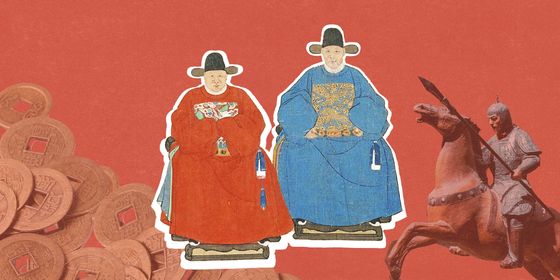Mistaken and misrepresented quotes from China’s most famous philosopher
“Before you embark on a journey of revenge, dig two graves,” Confucius (孔子) once said…except he didn’t. In fact, this is just one of countless proverbs, aphorisms, and quotes misattributed to the Chinese philosopher, along with “Choose a job you love, and you will never have to work a day in your life” and “The man who asks a question is a fool for a minute; the man who does not ask is a fool for life.”
The great sage’s thoughts and opinions are still widely referenced today in China (and across the world), and his pearls of wisdom are often quoted in daily conversation. Such is the weight of Confucius’s legacy, that any argument supported by a pithy saying from the philosopher born over 2,500 years ago is naturally more convincing. But the sayings quoted by your teacher, grandma, and “spiritual” friends may well never have actually been uttered by Confucius; or if they were, they could have been wildly misrepresented since his death. Combat these mistaken words of wisdom with our guide to some of Confucius’s most commonly misused and misinterpreted quotations:
以德报怨 yǐdé bàoyuàn
Return good for ill
This is a chengyu that comes from The Analects (《论语》), a collection teachings and stories involving Confucius written during the Warring States period (475 – 221 BCE), which means to repay evil with good. It is often quoted, and also frequently criticized as an unattainable moral requirement. However, Confucius was not in favor of this idea at all. According to The Analects, a citizen asked Confucius his opinion about the concept of “repaying evil with good,” and Confucius expressed his opposition. The sage’s full reply went: “If you return good for evil, what do you return for good? One should return injustice with justice, and repay good with good (以德报怨,何以报德? 以直报怨,以德报德).”
愚不可及 yúbùkějí
Couldn’t be more foolish
This is another widely-used idiom from The Analects. Today, this term is used to criticize someone for their stupidity—it's even defined as such in modern dictionaries. But Confucius originally used it as a compliment regarding Ning Wuzi (宁武子), an official of the State of Wei in the Spring and Autumn period (770 – 476 BCE). Confucius observed that Ning was adept at using his substantial governing talents when the political climate was good and the ruler righteous, but when the ruler was fatuous or tyrannical, Ning would purposely play dumb and work slowly to avoid assisting rulers in promoting foolish policies. “It’s not difficult to fulfill one’s talent, but it’s difficult to pretend to be foolish as he does (其知可及也,其愚不可及也),” Confucius said, praising Ning for his political wisdom.
三思而后行 sānsī ér hòu xíng
Think thrice before acting
When you are about to make a major decision, your family or friends may cite Confucius and advise you to act prudently and “think three times before acting.” This phrase is also from The Analects, but again, Confucius didn’t actually endorse this practice, and even felt it gratuitous. According to The Analects, when Confucius heard that Ji Wenzi (季文子), an official of the State of Lu during the Spring and Autumn period, often “thought three times before taking any action,” the sage commented: “Thinking twice is enough (再,斯可矣).” Though Confucius felt appropriate caution was necessary, he disproved of unnecessary wavering, and warned people not to become irresolute and hesitant.
言必信,行必果 yán bì xìn, xíng bì guǒ
Be trustworthy in word and resolute in action
Today, this phrase is a compliment used to describe someone who always keeps their word—but Confucius didn’t intend it this way.
The phrase comes from a conversation between Confucius and his student Zi Gong (子贡) on how to identify people of virtue. Zi Gong asked Confucius what kind of person could be regarded as shi (士)—a term referring to people of virtue and talent. Confucius replied: “They should know what is shameful, and be able to discipline themselves; aim to make contributions to society; and always act like a junzi (君子, respectable person).”
Zi Gong then asked: “What about people inferior to shi, what are they like?” Confucius answered: “Their clan praise them for their filial piety, and their communities praise them for being friendly.”
Finally, Zi Gong asked: “What about those of even lower standing than them?” The sage then replied: “They keep to their every word and are stubborn in every action. They are obstinate, and act like small men (言必信,行必果,硁硁然小人哉).” Here, Confucius suggests that being dogmatic and inflexible, and keeping to one’s word without consideration for changes in circumstances, are undesirable traits.
唯女子与小人难养也 wéi nǚzǐ yǔ xiǎorén nán yǎng yě
Women and small men are hard to deal with
Many have accused Confucius of sexism because of this infamous quote, while it is still wielded by modern day misogynists to complain about women. Literally, this quote means “only women and xiaoren are hard to deal with.” Confucius later explained why this was so: “If you get too close to them, they will become impertinent; if you alienate them, they will hate you.”
The main controversy comes from the placement of “xiaoren (小人)” and women in the same phrase. Xiaoren is a negative concept frequently mentioned in The Analects and refers to cruel men, men of small minds, or snobs depending on the context. Xiaoren are the opposite of the ideal Confucian man, junzi, and equating them with women (女子) represents a serious insult to that gender.
However, this may not have been exactly what Confucius sought to express. According to Zhu Xi (朱熹), a Confucian scholar who lived in the Song dynasty (960 – 1279) and whose commentaries on Confucian thought were considered to be official interpretations in the imperial examination in later dynasties, 女子 in this sentence didn’t refer to all women. Instead, Zhu argued, Confucius was talking only of concubines housed by a ruler; while the term xiaoren referred to the servants and slaves of that ruler. By this reading, Confucius meant to say that a ruler needs to deal with his concubines and servants in the proper manner.
Not everyone has bought this explanation, though. There is no evidence to prove Confucius was talking only about concubines rather than all women, and such sexist attitudes toward women may have been common during Confucius’ time. This could be one Confucius quote where the true meaning remains hidden forever.












